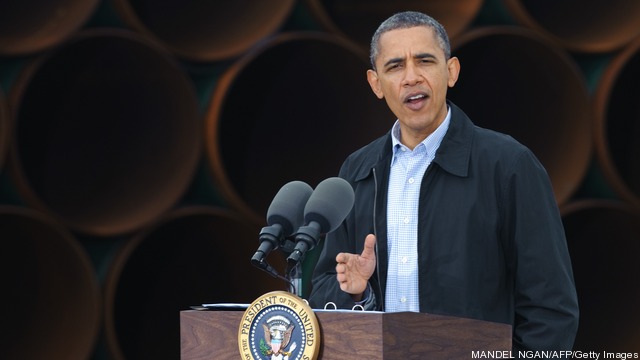
The fund manager will march in the Sierra Club’s first-ever act of civil disobedience against a controversial pipeline.
Politics
Sign up and get Breaking Energy news in your inbox.
We will never sell or share your information without your consent. See our privacy policy.
Tax code reform is expected to be high on the US political agenda this year and the issue of tax breaks or subsidies for Big Oil is often tossed around as part of the discussion. However, despite receiving various tax incentives, oil companies pay more in taxes than many other US-based multinational firms.
In their dogged pursuit of sensational headlines, media companies love to make a big deal about the largest US company by market capitalization, a title that ExxonMobil and Apple have traded for the past few years. Exxon recently reported its fourth quarter and full-year 2012 financials and on net income of roughly $45 billion last year, which is slightly higher than Apple’s approximately $42 billion, the oil company paid about twice as much in income taxes. Keep reading →

The debate over natural gas exports from the US has broken out of the energy sector and begun to raise temperatures across the political spectrum, with a high profile Congressional hearing this week underlining the stakes at play in a Department of Energy policy decision on the economic standing of natural gas export projects.
Despite being painted as absolutely opposed to exports of domestically produced natural gas and its position as a leader in the manufacturing sector’s opposition to unrestricted approval of export projects, Dow Chemical actually favors exports to free trade partners but is concerned about the impacts of unchecked exports to non free trade countries, the company’s Vice President for Government and Public Affairs Kevin Kolevar told Breaking Energy in a recent briefing. Keep reading →

If Congress and President Obama are ever going to get serious about tax reform, they will have to rethink some of the biggest and most popular tax breaks. It won’t be easy. Those tax breaks mostly benefit powerful voting blocs: the middle-class and the wealthy. The federal government gives up $1 trillion in revenue every year because of the hundreds of tax credits, deductions, exemptions and exclusions in the tax code. And the top 10 account for most of that $1 trillion. (Table of Top 10 below.)
Interior Secretary Appointment Seen as ‘Tipping Point in Second-Term Energy Agenda’
By Jared Anderson
When Ken Salazar announced he would step down as Secretary of the US Department of the Interior it created a difficult decision for President Obama and brought a campaign issue back to the fore. Regulating development on federally-owned lands – particularly for oil and gas drilling – is one of the most polarizing energy issues of the day and because this is a primary function at the Interior Department, the issue and the department’s role has exploded into the political arena.
The department’s mission: “The US Department of the Interior protects America’s natural resources and heritage, honors our cultures and tribal communities, and supplies the energy to power our future.” The onshore and offshore acreage managed by Interior account for 30 percent of US natural gas output, 30 percent of the country’s oil production and up to 40 percent of US coal production. Keep reading →

The Renewable Fuel Standard (RFS), a federal policy requiring that ethanol be blended into the U.S. gasoline supply at annually increasing amounts, has been touted by the biofuels industry as the solution to a myriad of energy woes. But in the seven years since the policy was enacted, the RFS has failed to meet its goals of protecting the environment and reducing dependence on foreign oil. It has and is forcing Americans to pay more for fuel, and it has raised food prices around the world. And yet, ethanol lobbying groups continue to argue on behalf of the policy, armed with an array of invalid claims:
Myth: “Oil is the cause of casualties abroad and economic volatility at home.” Keep reading →

Memo To DC: Think Long-Term On Clean EnergIn his inaugural address, President Obama issued a ringing call for U.S. leadership on the development of sustainable energy technologies. Given Republican reluctance on the issue, what that will mean in practice is hard to say, but a leading nonpartisan research group has a message for the administration and Congress: Adopt long-term, consistent policies or lose out to the rest of the world.
“Although initiatives in recent years have helped to stimulate clean energy progress in the United States, the future of government policy is now uncertain and weighs heavily on U.S. industry and its competitive prospects,” the Pew Chartitable Trust says in its new study [PDF], “Innovate, Manufacture, Compete: A Clean Energy Action Plan.” Keep reading →

The Keystone oil pipeline may have won approval from Nebraska’s governor Tuesday, but the final decision rests with President Obama.
And after the heavy emphasis on climate change in his inaugural speech Monday, analysts say Obama is likely to feel even more pressure to reject the pipeline. Keep reading →

The World Economic Forum is widely known for the glittering array of its high-profile attendees and more recently for its role in annually highlighting the response of global elites to the economic crisis that accelerated in 2008 and has played out in the euro crisis and grinding developed-economy recessions since.
Issues of national security, of globalization and of the role of business in increasingly transparent societies have been raised but have attracted less attention; this year, attendees say, that is likely to change. Keep reading →

